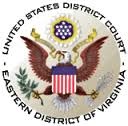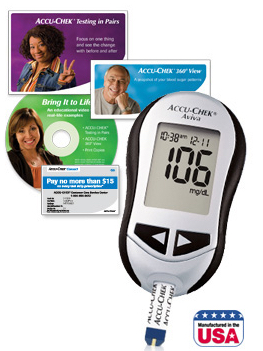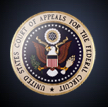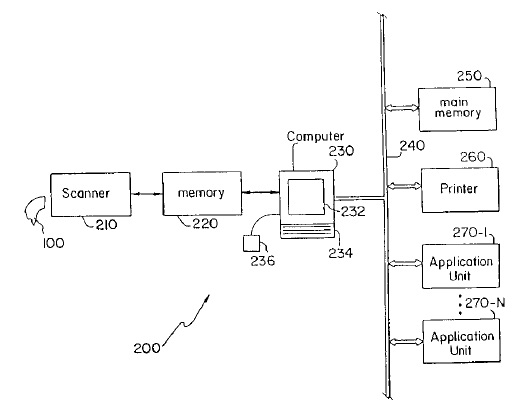Alexandria, Virginia – The District Court for the Eastern District of Virginia held in Shammas v. Focarino that the United States Patent and Trademark Office (“USPTO”) was entitled to recover attorneys’ fees when brought to court for a review of Trademark Trial and Appeal Board (“TTAB”) rulings.
v. Focarino that the United States Patent and Trademark Office (“USPTO”) was entitled to recover attorneys’ fees when brought to court for a review of Trademark Trial and Appeal Board (“TTAB”) rulings.
An examiner for the USPTO had refused to register a trademark for the term PROBIOTIC for a fertilizer on the grounds that it was a generic term for fertilizers and, in the alternative, was descriptive with no secondary meaning. Plaintiff Milo Shammas brought the matter to the TTAB, which affirmed. Shammas then asked for a review of the TTAB decision under 15 U.S.C. 1071(b)(1) in the District Court for the Eastern District of Virginia.
Summary judgment was granted in favor of the USPTO, which then moved for fees and expenses under Section 21(b)(3) of the Lanham Act. Section 21(b)(3) provides that, in cases such as these, “all the expenses of the proceeding shall be paid by the party bringing the case, whether the final decision is in favor of such party or not.”
Shammus argued that it would be improper to award attorneys’ fees, as they were not included in the statutory term “expenses.” The court was not convinced, however, and held that the plain meaning of “expenses” included both attorneys’ fees and other costs. This interpretation, the court explained, was further bolstered by Congress’s inclusion of the word “all” before “expenses.”
In determining the correct measure of fees due, the court noted that, while using market rates for legal services is appropriate when calculating “reasonable attorneys’ fees,” an award of “expenses” must be based on the actual salaries (when calculated on a per-hour basis) of the government trademark lawyers who defended the action. Thus, in this case, where the statute provided for “expenses,” attorneys’ fees were properly based on the actual hourly rate paid to the attorneys.
Practice Tip #1: The American legal system typically requires each party to bear its own litigation expenses, including attorneys’ fees, regardless of the outcome of the case.
Practice Tip #2: This fee-shifting decision was a matter of first impression regarding Section 21(b)(3) of the Lanham Act. It held that “expenses” as contemplated therein included attorneys’ fees. Moreover, ex parte plaintiffs must pay those expenses whether or not they prevail on the merits.
Practice Tip #3: Section 1071 was characterized as “arguably an odd statute” by the court. The court remarked that the statute “provides unsuccessful trademark applicants with a choice between an appeal to the Court of Appeals for the Federal Circuit on the administrative record, or alternatively, an action in federal district court where the administrative record may be supplemented with new evidence. Congress’s decision to allow this choice is odd for several reasons. First, it serves to lessen the trademark applicant’s incentive to put her best evidentiary foot forward before the PTO given that if she fails before the PTO, she can supplement the record in the district court. Moreover, Congress no sooner provides this choice than it takes an energetic step to discourage its use by requiring the unsuccessful applicant who files the district court suit under § 1071(b) to pay all expenses of the district court proceeding, win, lose or draw. This could lead to an anomalous result where the applicant must pay the PTO’s expenses of the district court proceeding even where the PTO loses in the district court on the administrative record alone and no new evidence is admitted or considered. In this circumstance, there is little reason to saddle the unsuccessful applicant with the PTO’s expenses. A second anomalous result is that the statute invites forum shopping. By allowing an action to be filed in a district court in lieu of an appeal to the Court of Appeals for the Federal Circuit, the statute invites an unsuccessful applicant to pick a district court in a favorable circuit because the appeal will be to the circuit in which the district court sits, not to the Court of Appeals to the Federal Circuit.”
Practice Tip #4: When determining whether to use market rates or actual attorney-fee expenses in fee-shifting cases, the Seventh Circuit has reached a conclusion similar to the decision in this case. The Seventh Circuit has determined, for example, that it is incorrect to use the prevailing market rate to determine an award of attorneys’ fees under 28 U.S.C. § 1447(c) because the statute limited fee awards to “actual expenses, including attorney’s fees, incurred.” See Wisconsin v. Hotline Indus., Inc., 236 F.3d 363, 367 (7th Cir. 2000).
 Indiana Intellectual Property Law News
Indiana Intellectual Property Law News







